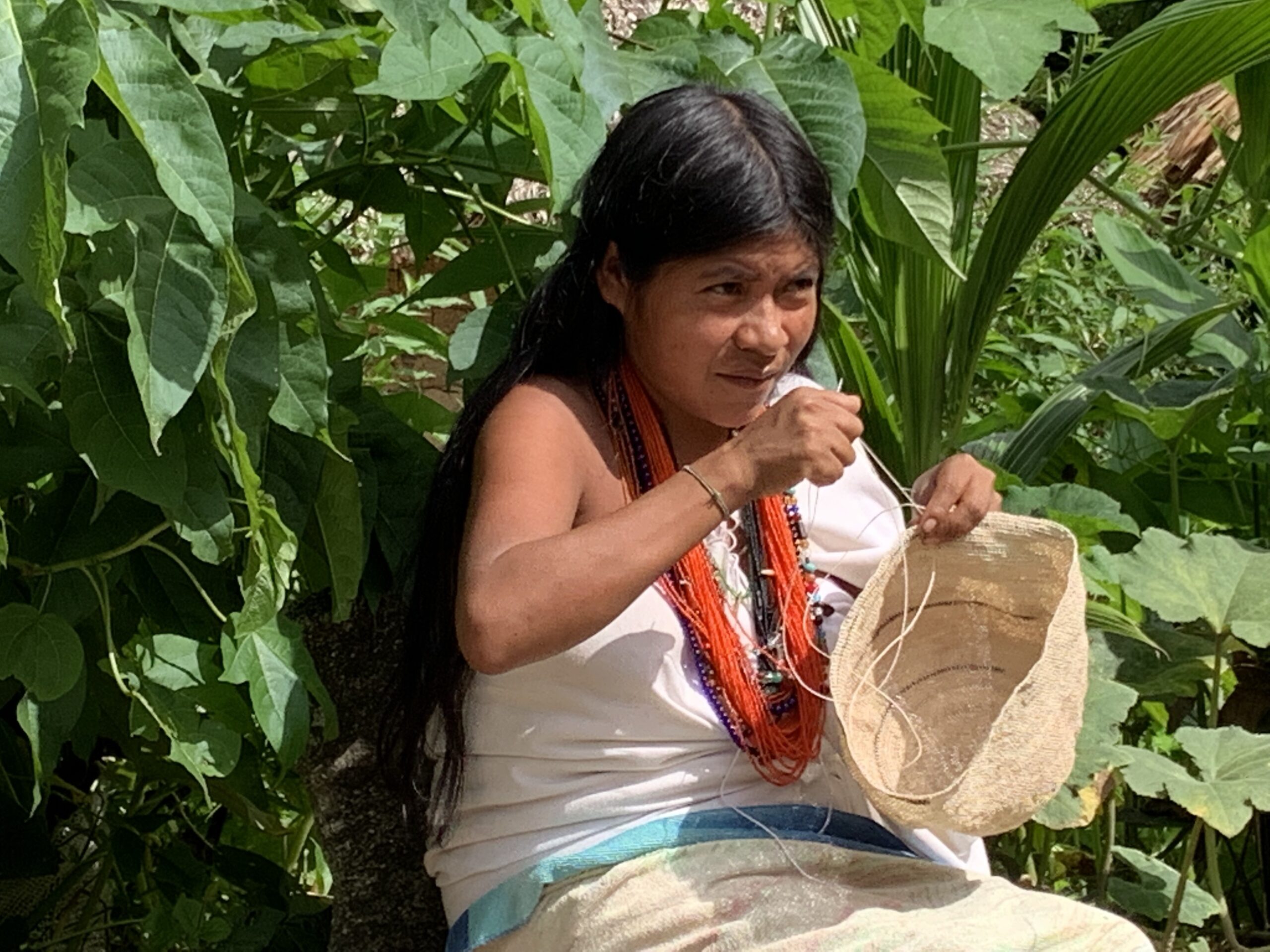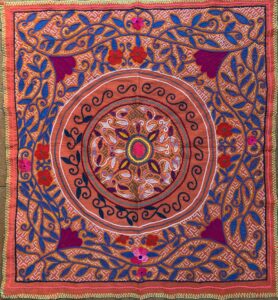By Mary Olivar, Vice President
Spiritual Midwifery – Traditional knowledge sharing from the Kogi Women to the Amazonian Women of Colombia
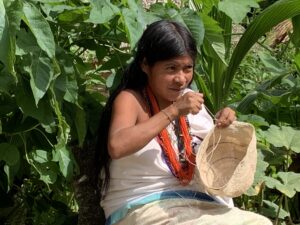
The practice of midwifery in South America, is an active ancestral practice that helps Indigenous women maintain their original nations, cultures and identities. The Center for Shamanic Education and Exchange is honored to support this new project, where spiritual midwifery wisdom held by the sanhas, the holy women of the Kogi Nations in Northern Colombia, with specialized training for midwifery, will be shared with Indigenous women in the Amazonian region of Southern Colombia.
The Kogi people live in the Sierra Nevada de Santa Maria mountains, the highest coastal tropical mountain range. Their culture and traditions have continued from the Pre-Columbian era, as they are the descendants of the Tairona, whose culture flourished in the northern Colombian region one to two thousand years ago. Currently there are believed to be about 15,000 people in the Kogi nation.
For many reasons, including their remote location, the diversity of ecosystems and microclimates in their area from sea level to snow peak, and how they have positioned themselves so close to nature while preserving their traditional knowledge, the Kogi people are seen as spiritual leaders for other Indigenous communities. Sometimes referred to as the “older brothers”, or older siblings, the Kogi are seen as guides to remembering the old spiritual knowledge that is deeply aligned to Mother Earth.
Learn more about the Gama Mochilas woven by the Kaggaba (Kogi) women here.
This project includes two primary aspects and goals:
The first is to identify and connect with the Indigenous Kogi women who are holding these traditional midwifery wisdoms and practices. Because the people of the Kogi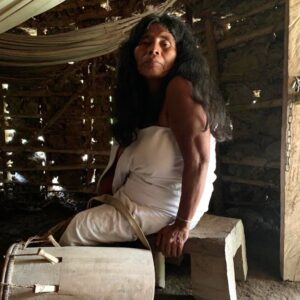 nation are spread out in numerous villages throughout various Mountain Basins in La Sierra, it is uncertain how many sanhas exist who hold this specialized knowledge. This portion of the project is directed by the Kogi mamos, the spiritual leaders of the communities. The local organization of Sewa Colombia is also invovled in coordinating these logistics of this unprecedented and multi-faceted project.
nation are spread out in numerous villages throughout various Mountain Basins in La Sierra, it is uncertain how many sanhas exist who hold this specialized knowledge. This portion of the project is directed by the Kogi mamos, the spiritual leaders of the communities. The local organization of Sewa Colombia is also invovled in coordinating these logistics of this unprecedented and multi-faceted project.
Once this first phase is complete, there will be a gathering that includes sanha Kogi women as well as Indigenous midwives and their apprentices from Southern Colombia. This part of the project is occurring as a partnership between ASOMI, an association of 5 indigenous ethnic groups. ASOMI is a non-profit association of indigenous women knowledgeable about traditional medicine from the Siona, Kofan, Inga, Kamëntša and Coreguaje indigenous people from the Caquetá and Putumayo areas. They work to support the transmission of traditional knowledge from Indigenous elder women to the younger generation.
ASOMI believes and supports women as the holders of Indigenous family life and knowledge in this region. ASOMI has been consistently working in this southern region with Indigenous women since 2004. In 2015 they built a community center, which holds regular events and gatherings that focus on the female Indigenous elders sharing with the indigenous youth their knowledge, especially of plants and language. Birds have also been an important piece of this knowledge transmission, helping the youth to understand the role and the part birds hold in this Indigenous knowledge system.
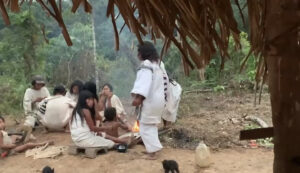
The meeting of midwives accomplishes a bridging of different areas of Indigenous people in Colombia; namely of the northern mountainous and coastal region near La Sierra where the Kogis live, and with the southern inland rainforest and jungle region around Putamayo. Part of this cultural sharing highlights the way each region’s Indigenous people have a special relationship to nature and how they have maintained their connection to nature despite the historical and political challenges present in Colombia.
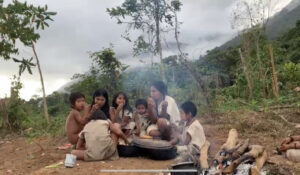
CSEE is deeply grateful to Adriana Salazar, our liaison with ASOMI and Sewa Colombia. It is through her leadership and guidance that this project is possible. Muchas gracias Adriana! Visit their website to learn more about this organization: https://mujeresasomi.org
Your purchase from our online shop makes a difference! This featured textile is called “Song of poma rosa, tobacco, to protect internal organs”. Our shop provides you with an opportunity to purchase one-of-a-kind, hand made items that come directly from the Shipibo and Huichol people we work with.
Browse our shop right here: https://shamaniceducation.org/shop/
Your donations support our projects, helping us continue our mission to perpetuate the shamanic wisdom, culture, practice, and traditional ways of life of Indigenous people worldwide. Please accept our gratitude for your continued support and contributions. https://shamaniceducation.org/get-involved/donate/
